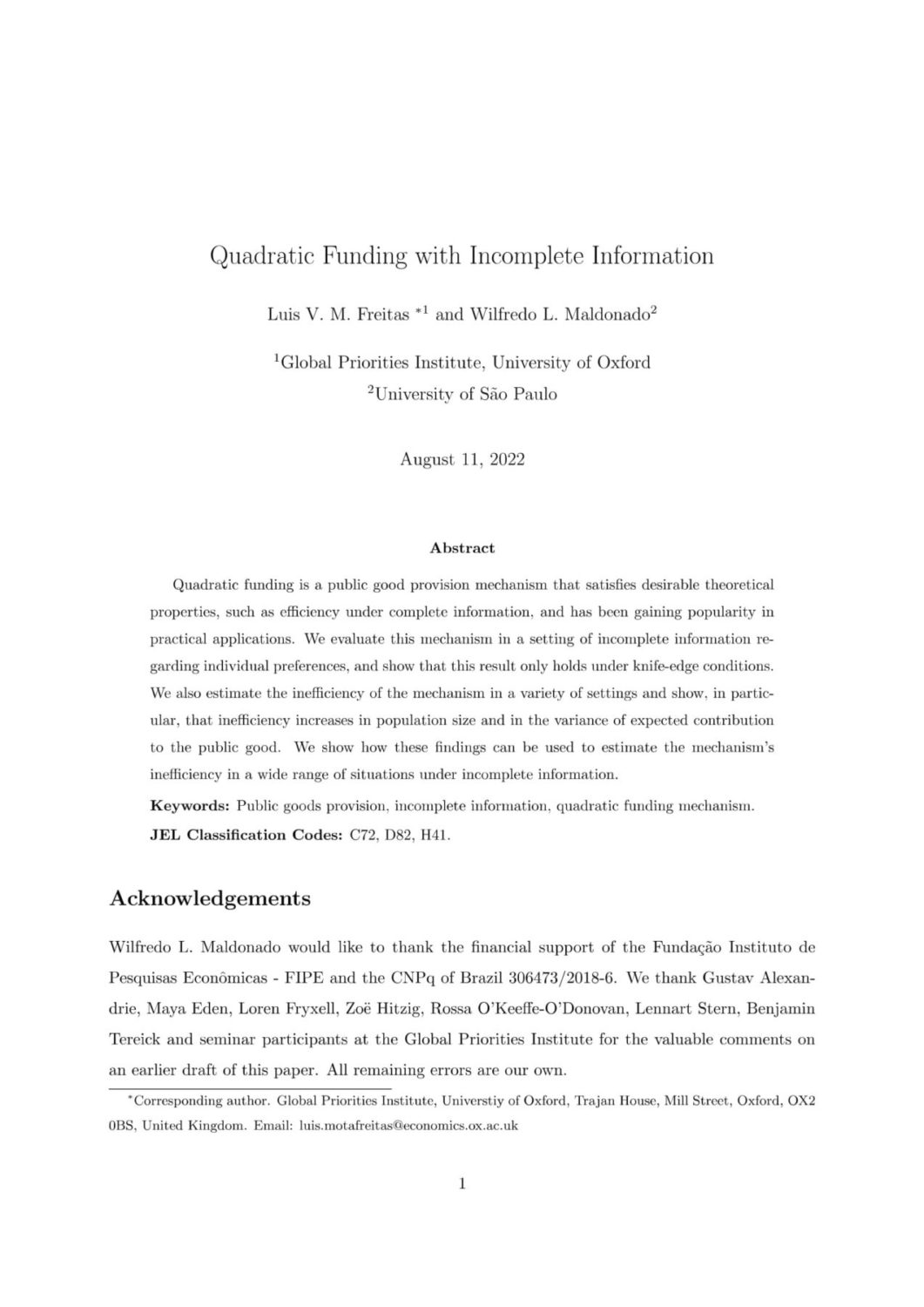Quadratic Funding with Incomplete Information
Luis V. M. Freitas (Global Priorities Institute,
University of Oxford) and Wilfredo L. Maldonado
(University of Sao Paulo)
GPI Working Paper No. 10 - 2022, published in Social Choice and Welfare
Quadratic funding is a public good provision mechanism that satisfies desirable theoretical properties, such as efficiency under complete information, and has been gaining popularity in practical applications. We evaluate this mechanism in a setting of incomplete information regarding individual preferences, and show that this result only holds under knife-edge conditions. We also estimate the inefficiency of the mechanism in a variety of settings and show, in particular, that inefficiency increases in population size and in the variance of expected contribution to the public good. We show how these findings can be used to estimate the mechanism’s inefficiency in a wide range of situations under incomplete information.
Other working papers
Population ethical intuitions – Lucius Caviola (Harvard University) et al.
Is humanity’s existence worthwhile? If so, where should the human species be headed in the future? In part, the answers to these questions require us to morally evaluate the (potential) human population in terms of its size and aggregate welfare. This assessment lies at the heart of population ethics. Our investigation across nine experiments (N = 5776) aimed to answer three questions about how people aggregate welfare across individuals: (1) Do they weigh happiness and suffering symmetrically…
Maximal cluelessness – Andreas Mogensen (Global Priorities Institute, Oxford University)
I argue that many of the priority rankings that have been proposed by effective altruists seem to be in tension with apparently reasonable assumptions about the rational pursuit of our aims in the face of uncertainty. The particular issue on which I focus arises from recognition of the overwhelming importance…
Will AI Avoid Exploitation? – Adam Bales (Global Priorities Institute, University of Oxford)
A simple argument suggests that we can fruitfully model advanced AI systems using expected utility theory. According to this argument, an agent will need to act as if maximising expected utility if they’re to avoid exploitation. Insofar as we should expect advanced AI to avoid exploitation, it follows that we should expected advanced AI to act as if maximising expected utility. I spell out this argument more carefully and demonstrate that it fails, but show that the manner of its failure is instructive…

